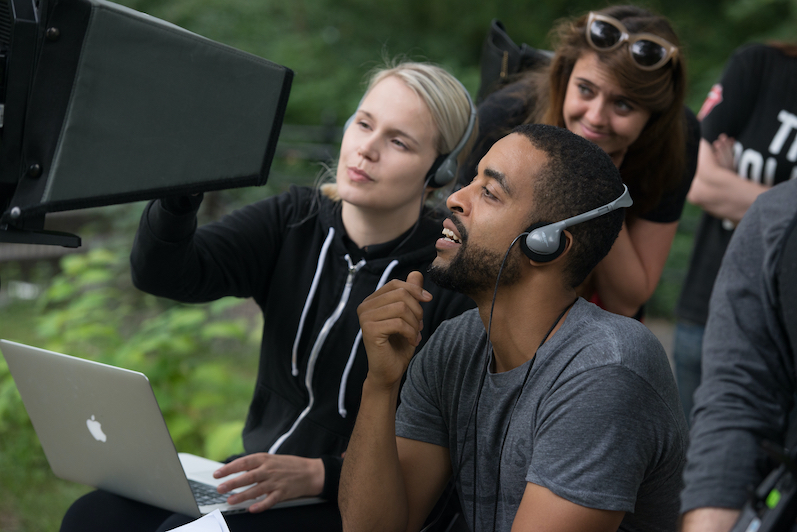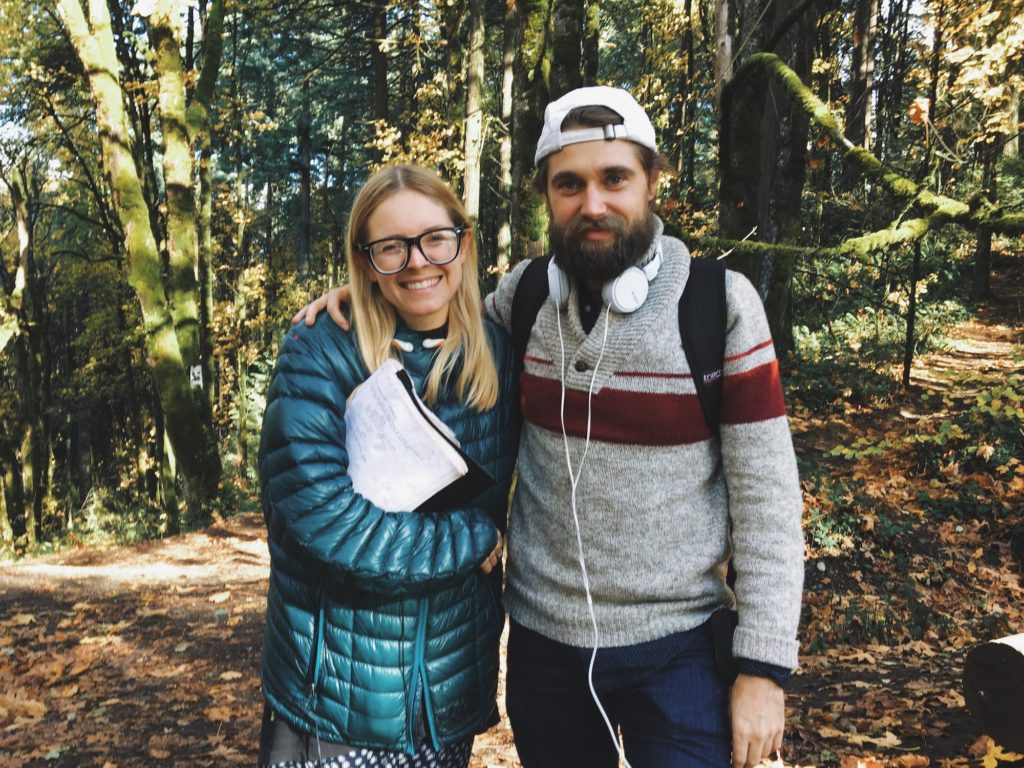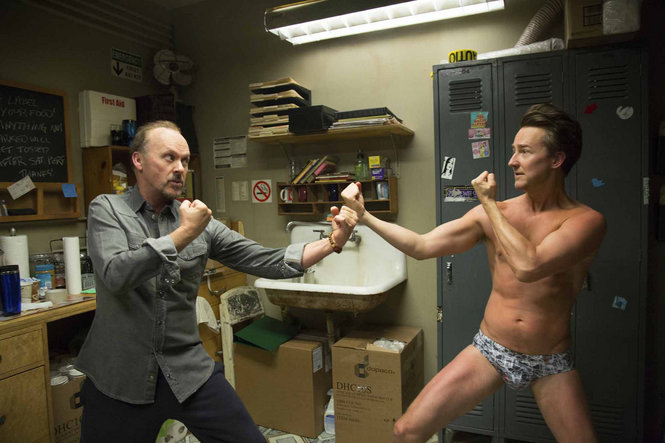New York-based filmmaker RASHAAD ERNESTO GREEN has made quite a name for himself as an emerging voice of independent film. He first gained attention with a series of short films, 2008’s Premature (which won an HBO Short Film Award), followed by the Sundance-selected Choices and HBO’s Cuts the following year. He was named one of Filmmaker Magazine’s 25 New Faces of 2010 and premiered his feature directorial debut Gun Hill Road at Sundance in 2011. After a stretch of television directing (including episodes of Supernatural, Being Mary Jane, and Luke Cage), Green got to work on his sophomore feature, returning to a story he’d broached close to a decade prior.
PREMATURE (the feature) tracks the Harlem-set summer romance between college-bound poet Ayanna (Zora Howard) and aspiring musician Isaiah (Joshua Boone). Green reunited with his co-writer and star of the short film, Howard, to expand the story into an exploration of black love and a young woman’s coming-of-age. Premature premiered at the 2019 Sundance Film Festival (where Rashaad hosted SAGindie’s Filmmakers Luncheon). Since then, IFC Films acquired the movie for distribution and Green won the Someone To Watch Award (as well as a John Cassavetes Award nomination) at the 2020 Film Independent Spirit Awards. Premature will arrive in theaters on February 21.
We had a chance to speak with writer/director/producer Rashaad Ernesto Green about his career, his collaboration process, and what led him to greenlight Premature himself.
——
COLIN McCORMACK: Going back to the short film Premature from 2008, when you finished work on that, did you think, “Oh, this is a story I could probably expand on in the future?”
RASHAAD ERNESTO GREEN: Potentially, at the time. I wasn’t against the idea. I hadn’t thought of that originally when I made it, but after receiving some love on the festival circuit for it, the thought crossed my mind. I just didn’t know what the story would be. When we approached Premature the feature, the initial impulse wasn’t necessarily expanding the short. The initial impulse was to tell a love story and while we were writing that specific love story, themes from the short film began to creep into the process, which we then embraced and it became Premature.
In the short film, it’s not focused around any love story. There’s a relationship in there, but it’s not the same relationship as we’re exploring in the feature. Some of the circumstances, the characters, the world, and events are the same but in the feature, it’s very much focused on the love story. We felt that the [same] title as the short was also fitting once everything was in place.
CM: You and your co-writer and lead actor Zora Howard had obviously kept in touch in the years between the short and the feature?
REG: Yes, Zora I have known since she was 11 years old. In the short film, I cast her when she 14. We’ve lived on the same physical block in Harlem for the last 15 years and her family’s been kind of my second family away from home. So when I’m hungry, her mom always invites us over to have food. I’ve kind of grown up as an older sibling to Zora in many ways.
CM: What was your co-writing process like? Were you and Zora collaborating in the same room or were you taking turns on a draft and handing it back and forth?
REG: We initially got in a room when she had a month off from school – she went to the acting program at UCSD – and we had talked about collaborating on something. She came home for the winter recess and we had a one-month deadline, basically. I said, “At the end of this month, we’ll have a draft of a feature. We don’t know what that feature will be, but I’ll direct it, you’ll star in it, and then we’ll hopefully premiere the film at Sundance.” Then we started asking ourselves what it was we felt was missing in current day black cinema and we both decided that we hadn’t seen a great love story in a while and that we could both cull from each other’s experiences in order to present something that felt authentic on-screen, having been through heartbreak and such from both sides.
The first part of that process during that month was spent in a room with coffee talking about each other’s lives and just really digging deep into what it was like when we were in college or high school. The things that we thought about or felt at the time, what was important to us, and how these relationships, these first loves of our life, helped shape our lives. We just spoke for hours. We watched a lot of films as well and then we started throwing out ideas for scenes and then we started drafting together. I’d take a series of scenes, she’d take a series of scenes, et cetera. We’d show each other the work, put it together, comment on it, and then continue to press forward. She then returned to school and I went to direct a couple of episodes of television over 2017. When she graduated from school, she came home and started working for a theatre company, I went to Colombia, and we continued to talk whenever we could and read when we could, but it then became sort of separate. We basically shared what we had when we had it, and when I felt like the script was in a place that had a decent structure – meaning the protagonist Ayanna had a clear journey from beginning, middle, to end – then I decided to come back to the States and seek financing.
CM: From your first feature in 2011 to when you were getting financing for your second feature, did you notice any major changes in the indie film landscape – in terms of the types of stories financiers or distributors were willing to get behind? Did anything jump out from those intervening years?
REG: I don’t know if I’ve ever been as business-savvy as some of my contemporaries. I try to keep an eye out for films and try to understand the marketplace in a way. I don’t necessarily write towards it, but it’s something I try to remain aware of. Knowing that this was a film that didn’t have any stars in it, that was an independent drama, it wasn’t necessarily going to be a tried and true moneymaker in the eyes of production companies. So I decided to write it in such a way that if push came to shove and we didn’t get someone to sign a check, then I might be able to greenlight it myself. That’s what ended up happening.
The first time around with Gun Hill Road, I don’t know if I should refer to it as a fluke, but it’s the kind of story that doesn’t really happen to most people seeking financing. I had some success with the short films – Premature, Cuts, and Choices were on the festival circuit at that time – so by the time I wrote that feature, a producer reached out to me and asked me what I was doing next. I guess because the ball was rolling in such a way, he was interested. I told him about Gun Hill Road, about the story, and he said, “That sounds very interesting. I’d like to help you out with that.” He said that before even reading it. Then he read it and then he became the producer of the film. That was unheard of because I didn’t even seek financing, I hadn’t gotten to that stage in the process yet. Although, I had in my mind at the time – a very similar mindset – that I was going to make that film regardless. Whether it was $1 million or $50,000 from grants I had saved up, whether it was SAG or non-SAG, union or non-union, I was going to make that film with the pennies that I had saved up, or put in on a credit card, or what have you. When the producer came in and said he wanted to help me out, all of a sudden I was able to go out to actors like Esai Morales and Judy Reyes and Miriam Colon, God rest her soul. It became bigger than I had anticipated because I ran into that freak and fluke blessing.
This time around, I think I was a little bit more – not necessarily skeptical, but I was just a little bit more aware of how things usually happen. Not because I had been in the indie financing game for six or seven years, but just because I knew that first time around was unheard of. So I was prepared, especially having not made a film in five years or so and just having TV credits under my belt, it was not the sort of momentum that would have been more attractive to financiers. I knew I might have to pull that trigger myself and I was impatient. I’m a very impatient person, I’m beginning to learn in my life, so where I might have waited for more money or more interest for another year, I didn’t want to wait another year. I felt like the script was in a decent enough place and it could be made for Sundance 2019 and I didn’t want to wait for 2020. When we originally got in that [writers’] room at the tail end of 2016, I made a statement, “We’re going to premiere the film at Sundance in 2018 or worst comes to worst, 2019.” 2018 had already passed and the time was running out for 2019, so I said, “I have to keep my word, so I’m going to put my money where my mouth is and I’m going to greenlight this film.” I did so with the help of a dear friend of mine Susan Kelechi Watson, who is an actress on This Is Us. An organization called Cinereach gave a grant as well, and Kodak was very helpful on the film stock and processing discount that they gave us. Once we got into Sundance, there were two production companies, Astute Films and Slice Entertainment, that came and helped us finish the film.
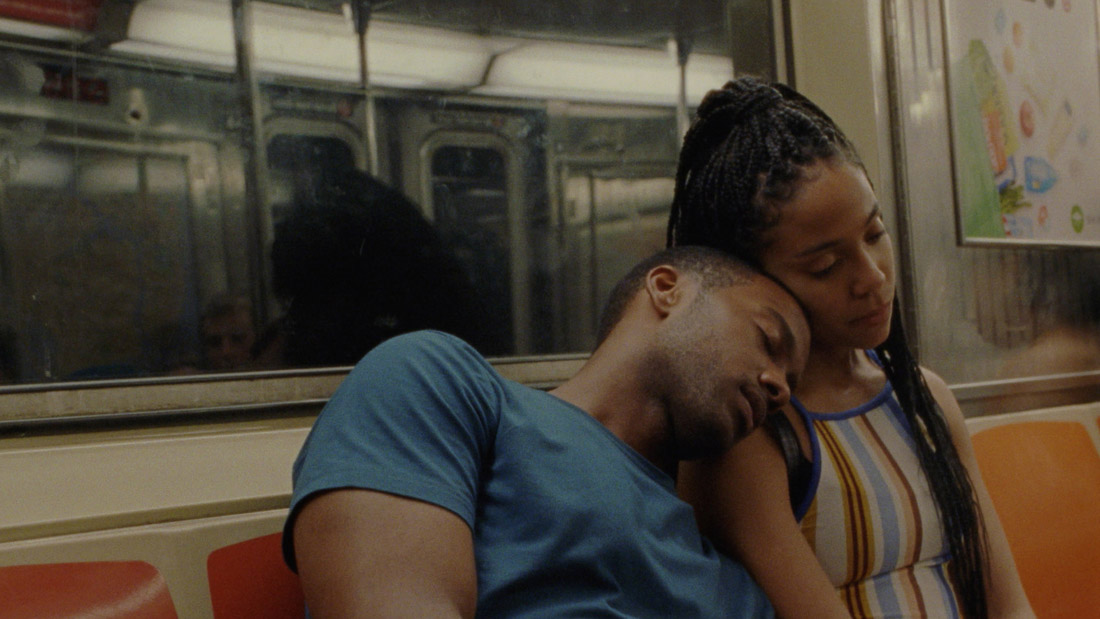
CM: You obviously wrote the role of Ayanna with Zora in mind. What was the process like for casting Joshua Boone as Isaiah?
REG: Neither one of us were aware of any actors that fit the character we had written. Looking at some of the young actors from films of recent years, I did meet with a young man in LA who I thought was wonderful. But we had a reading of the script not too long before we made the decision to make the film and started putting feelers out for someone who could at least step into the reading, and Joshua Boone was recommended to us. Neither one of us knew him or knew his work, but he came in having not finished the script entirely when he met us, but his handle on the material was so grounded. I felt like I was able to fall in love with Isaiah just from his interpretation of the role. He had such a handle on the material that we were both very taken with him. He was a little bit older than we had intended, so when the actual casting process came around, I asked him to look young [laughs]. As young as he could, whether that’s shaving or wearing clothes that make him look a little bit more youthful. And he came in, he’d shaved and had a close haircut, and it was just a matter of when I put them on screen together. I hoped that at no point folks would feel icky about their chemistry because one felt older than the other, but I think at the end of the day, you don’t really question the age gap. Because Zora was also not 17, and I think it feels right at the end of the day that they’re playing a little bit younger than they are.
CM: Their chemistry is so strong, as is the chemistry between Ayanna and her girlfriends. I assume with such a tight schedule you weren’t able to have rehearsals or a lot of time for the actors to mesh and build that chemistry?
REG: Yeah, I’d say you’re correct in that assumption. Of course, the intention was that I wanted at least a week of rehearsal because those scenes are so important that you get a sense of authenticity, they’re overlapping each other and talking over each other and all of that. But we ran out of time and we didn’t have the money, unfortunately. We had a couple of readings; one was that initial reading several months before production, and then right before production we had one final cast reading. The young women and everybody – Michelle Wilson, who plays the mom, Josh, everybody – was so game to just jump in there and contribute what they had to the process. The rehearsals became sort of day-of, morning-of, to get them loose and go over the scene a whole bunch and get it into their bones in such a way that when the film started rolling through the camera, we didn’t have to spend as much time as if we hadn’t rehearsed.
We had a combination with the group of friends of actors and non-actors and new actors. I had worked with Tashiana Washington before in Gun Hill Road and she’s a real team player and able to be part of an ensemble and she’s great with improv and stuff like that and was able to round out some of those scenes and make them feel really natural. Alexis Marie Wint, who plays the best friend Tenita, had never acted in anything before but she was a spoken word artist and knew Zora from the spoken word circle and had such vivacious energy. I also asked her to come in looking younger [laughs] and she came in with the cornrows. I was very, very blessed to have her. And Imani Lewis blew us all away. She had had a little stint in Eighth Grade and came in and was so raw; she had some training but also had that ability to be authentically New York, so very, very, blessed to have her round out the group of friends, for sure.
CM: Because of your TV experience in those years between your two features, did that really help you in terms of doing things more quickly than a bigger-budget feature film is used to?
REG: Absolutely. I’m used to a certain pace and grind now as a result of cutting my teeth in television. I’m aware of what all the departments do, what they should be doing, so I was definitely able to work at a pace that was different from I would think most big-budget features.
CM: Once you started filming, how long was your production schedule?
REG: We shot over 18 or 19 days at the most.
CM: It was in the fall and you were going to Sundance in the winter? Was it that tight?
REG: Yeah, we shot in September and we turned in the Sundance cut on October 15. We began production, I believe, on the third or fourth of September, we ended right at the end, and it was a two-week turnaround. And because it was shot on film, the last of the footage we didn’t receive until four or five days later. So we only had all the footage for about 10 days of that two-week cut.
CM: That’s wild.
REG: Yeah, pretty nuts. Obviously, we continued to cut after we submitted to Sundance and finesse it and mold it over that next month. But I knew that the turnaround for television was even faster and I knew that I was capable. If I shot it in such a way that didn’t offer an infinite amount of options in the editing room, then I knew that there was a chance to get it into the can and get a cut. Because when you’re in TV, you shoot 43 minutes’ worth of material in seven to eight days, sometimes less. And your schedule in the editing room, the editor gets four days before you get in the room, and then when you’re in the room you get four days as a director. So my schedule for the last five, six years has been very, very fast and sometimes I’ve done five or six or episodes in a single year and all of those are finished works that premiere in front of an audience. I got frustrated a little bit because once I walk out of the editing room as a director in television, I don’t have a say after that. It goes to the network and the studio and the writers and the producers, so I became a little bit frustrated that I didn’t feel like my voice was being utilized as much as it could be. I was definitely working a muscle in television, but I didn’t feel like it was my baby; it was somebody else’s baby. So I had to stop. I had to put a pause on the episodic work in order to write Premature.
I knew that once we got to the editing process, my editor Justin Chan is pretty fast and opinionated – which is what’s needed in order to come to a consensus. He’s not one of these guys who’s just finding it or letting the material speak to him, no he’s like, “No, this doesn’t work, this doesn’t work.” Boom. You need that kind of shorthand. We had worked together on a short film back in the day, so this was our second collaboration. He’s like I said, very opinionated and not afraid to say what he thinks [laughs]. So we battled a little bit and sometimes disagreed, but at the end of the day we had a cut in two weeks, so it worked.
CM: I guess that’s the blessing also of shooting on 16mm, where you’re more economical on what coverage you get. You won’t have endless takes to go through.
REG: That’s exactly right. We were forced to be a little bit more economical in the approach to shooting because we knew that the 16mm was burning through the camera and didn’t have time to waste or money to burn.
CM: To wrap things up, what’s next for you?
REG: I have a couple of irons in the fire. I’m writing a project now – I don’t know if I should say specifically what it is – but it’s about a well-known historical figure within the music industry.
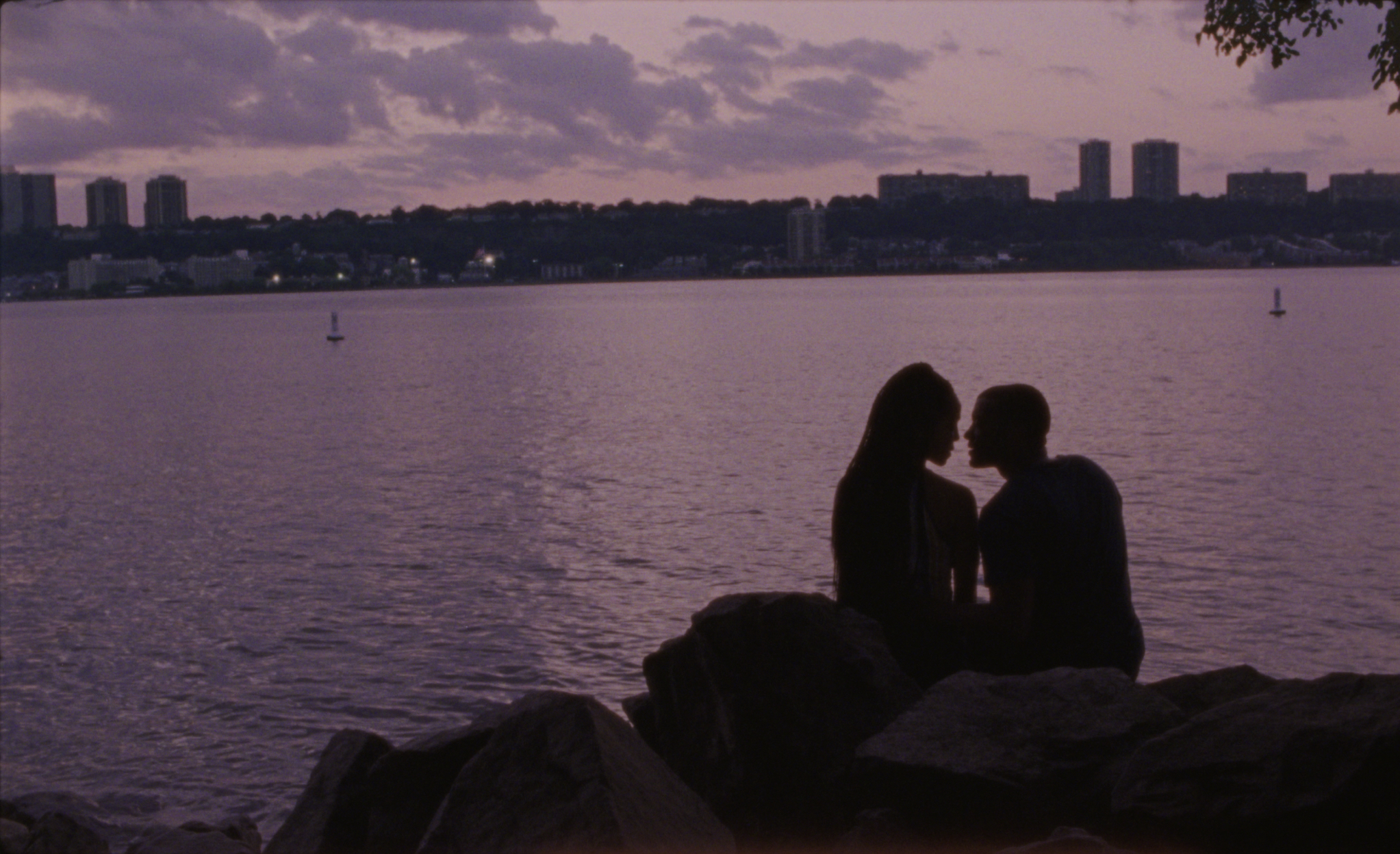
__
Thanks to Rashaad for talking to us about PREMATURE. Learn more about the film at prematurefilm.com follow the film on Twitter, Facebook, or Instagram.
This interview has been edited for clarity.
If you’re an independent filmmaker or know of an independent film-related topic we should write about, email blogadmin@sagindie.org for consideration.

